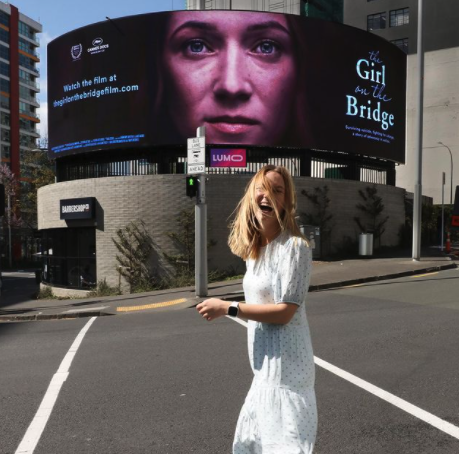Jazz Thornton: The value of self-care and connection
The mental health activist and Voice of Mentemia shares her wisdom gleaned in 2020.
2020 brought with it some big life lessons for us all. We became more attuned to the true value and importance of human connection. And with so much change and uncertainty around us, good self-care practices became vital to help us cope.
For mental health activist and Voice of Mentemia Jazz Thornton, the year also contained some major milestones, which helped to cement those lessons even further.
At the beginning of the first lockdown, she released her book Stop Surviving, Start Fighting.
Then in the middle of the year came her documentary The Girl on the Bridge. Both were received with great acclaim.
Meanwhile, through her organisation Voices of Hope she continued her tireless work to improve the outcomes for those struggling with mental health issues.
Through all of this, Jazz has discovered that reaching out to others, and knowing when to show kindness to herself, are key to getting through.
“My profile and my story really blew up quite fast,” says Jazz of her trajectory into the limelight . “I went from being a film school student to having my face everywhere - being the subject of a film and writing these books. I suddenly had people coming up to me in public all the time. For a while I was in this mindset that I had to always present myself as this strong brave advocate. Any time I didn’t feel that way, I’d worry that I was some sort of fraud. I thought I had to be that person that people saw on the news or in the movie.”
An important lesson for Jazz to learn was that it wasn’t possible for her to sweep in and save everyone - and she was still allowed to have off days and feel vulnerable too.
“I really had to realise that it’s not my job to be a superhero. In fact, for me to even suggest that was a little bit vain!” she laughs.
What was crucial however was that she needed to have people that she could lean on when she was the one requiring a guiding hand.
“So much of my life as an advocate is making sure that other people are ok so there’s also been an element of me learning, ‘Ok this is when I need to reach out to others.’
Having a good support network, Jazz says, is vital to everything she does.
“The people around me are the only reason that I can do what I do and run at the pace that I do in life. It’s because they will always be willing to pull back the reins and say, ‘Stop, slow down.”
Despite this awareness that connection is key, Jazz says she still, at times, finds it hard to reach out. “There’s always that fear of rejection or that people won’t reply. Either they won’t want to see me or they will feel like they have to. This was something I often used to overthink as a teenager but I still do it sometimes to this day. You give yourself all of these untrue beliefs and it can make reaching out really difficult. What helped for me was when I started thinking, ‘What if I knew that my friend was thinking that way about me? Of course, I’d say to them, ‘Just call me!’. Flipping it made a big difference.”
These days Jazz feels more able to accept help but she also has effective self-care strategies she can use.
“It’s good to have a combination of reaching out to others for comfort and being able to provide it to yourself too. For me, as a teenager I would try and do everything for myself and then I would hit that crisis point and only then would I let people in. Equally I think a lot of teenagers can be the opposite and will reach out to others but then not know how to look after themselves.
“I think it’s important that we learn to do the self-care things because otherwise, we can get into a habit of believing that only other people can solve our problems. There are things that we can do to create a healthy lifestyle and keep that connection up but not use that as a saving point.”
Jazz has a few strategies she knows to employ when things start to feel overwhelming. “I find watching a really good tv show helps so I can just be in this pretend world for a while.
Going for walks is another big one. I also have the infamous phone lock box which means I can put my phone away for an hour and I can’t get to it. In the beginning that was anxiety inducing but now I do it and I’ll use the time to read or do sudoku instead.”
Her biggest game-changer over the past year is creating a routine of taking a moment to reflect on what’s going well.
“In the morning, before I check my phone, the very first thing that I do is write down three things that I’m thankful for. It can be light or meaningful. It sets my position of gratitude for the day and it makes it a little bit easier going into it. Then just before I go to bed at night I do the same thing. It realigns my perspective and I’ve loved it. It doesn’t minimise the difficult things but it reminds me that even when things are hard there are good things too.”
Discover more about how to schedule in some self-care, find the courage to reach out when you need support or connection and create a bedtime gratitude practise that has lots of benefits for your mental wellbeing.





